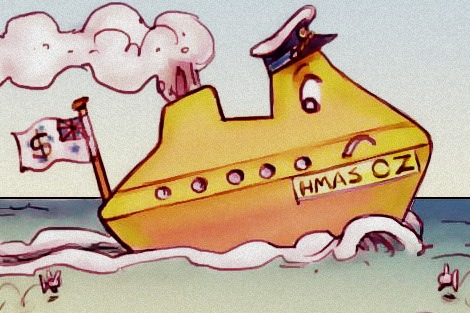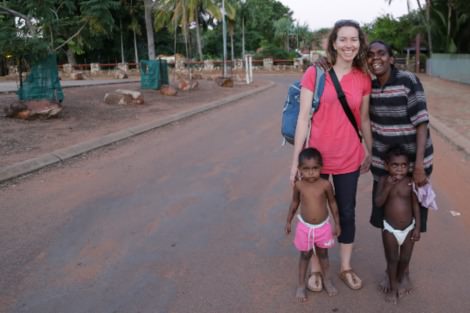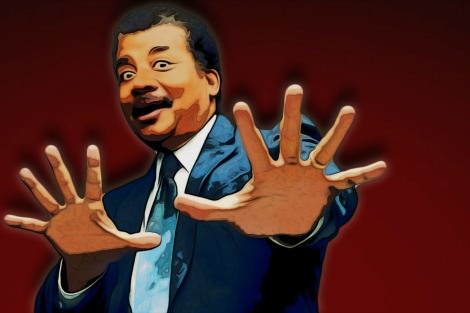Keywords: Acting
There are more than 200 results, only the first 200 are displayed here.
-

ARTS AND CULTURE
As is the time-honoured tradition of Hollywood PIs, Holland has long bound the wounds of some unresolved grief in alcohol and cynicism. Notwithstanding individual tastes that are by no means aligned with gender, this is the kind of movie that can tend to appeal to puerile male interests while diminishing respect for women. In this regard Shane Black, a mainstream filmmaker who is more self-aware than most, tries to have his cake and eat it too, by both drawing and subverting the objectifying male gaze.
READ MORE 
-

ARTS AND CULTURE
With PNG's Supreme Court finding last month that the detention of asylum seekers on Manus Island was unconstitutional, the shamefulness of Australia's border protection policies was once again laid bare. Advocates will be familiar with the facts and arguments that Chasing Asylum articulates. What sets it apart is its wealth of hidden camera footage caught within the grim confines of the centre on Nauru, and Orner's conversations with detainees and social workers who bore witness to the dire daily reality there.
READ MORE 
-

ARTS AND CULTURE
The film explores the dynamic between men and their ageing parents, as Frank, trying to make up for neglecting his relationship with his own dead mother, clashes with Sarah's neglectful adult son. Essential to this sifting of family and belonging as central to the identity of suburban males, is a rumination on houses as homes versus property. As a real estate agent, Frank is repeatedly chastised by a young father who feels increasingly priced out of the market.
READ MORE 
-

AUSTRALIA
If Australia knows who its enemies are, presumably these putative enemies have a fairly good idea who they are as well. How are they likely to respond to a purchase of submarines? By initiating military countermeasures? By exacting trade sanctions? By diplomatic reprisals? These questions are vital, not just for military planners but also for anyone who is likely to be affected by Australian foreign policy as well as those who want to know more generally how their tax dollars are to be spent.
READ MORE 
-

ARTS AND CULTURE
Despite its epic scope it is also deeply intimate and, dare I say, spiritual. Roy regards his son with a mixture of stern, protective love, and helpless wonder. They are joined in their quest by Roy's childhood friend Lucas, a state trooper converted to Alton's cause after literally seeing the light in his eyes. Also by Alton's mother, Sarah, who of all the cohort has the most direct experience of the 'sense of awe' that ultimately unfolds from the 'mystery' of Alton's story.
READ MORE 
-

AUSTRALIA
Doreen, a women's leader from the community in Kalumburu, said, 'it is our dream for us women to get up and make the community stronger'. Such determination ought to be facilitated. What this means is making avenues where Indigenous culture and cultural life are at the centre of the conversation to effect change. Instead of adopting a 'helping' attitude, there needs to be a shift towards facilitating self-agency as an economically rational approach when it comes to Indigenous Australians.
READ MORE 
-

RELIGION
- Frank Brennan
- 02 May 2016
2 Comments
READ MORE
-

MEDIA
There have been attempts by some in the media to mount a moral justification of 60 Minutes' actions. At least they were trying to do the right thing, by helping a mother who would not have been denied custody in Australia But that opens another slimy can of worms. Do we think 60 Minutes would fund a child abduction in Australia, rather than a Muslim country with religious courts, however much the parent they were purporting to help might seem to have been denied custody unfairly?
READ MORE 
-

ARTS AND CULTURE
- Tim Kroenert
- 21 April 2016
3 Comments
Socialite and amateur operatic soprano Marguerite cuts an intriguing and tragic figure, devoted to her craft but oblivious to her lack of talent. Yet the joy she gains from believing she is a great singer doesn't depend on the reality or otherwise of that belief. Is it right or wrong for those who care for her to allow her to continue in her delusion? The question echoes the concept of a life-lie, invoked by Henrik Ibsen to argue that human beings are sometimes better off living in at least partial ignorance of reality.
READ MORE 
-

RELIGION
- Andrew Hamilton
- 07 April 2016
19 Comments
How do good people sink to this? The answer lies in the mutation of economic ideology from the crude buccaneering spirit of doing whatever it takes to get rich into a more urbane form. People see themselves as competing, not only for their own economic benefit, but for that of the company. This means greed can mask itself as altruism in serving a larger good. And as in the case of churches, identification with the company provides reason for protecting the company's reputation at all costs.
READ MORE 
-

MEDIA
- Ketan Joshi
- 06 April 2016
7 Comments
When Alan Alda was 11, he threw a simple inquiry to his teacher. What's a flame? The response he received was less than satisfying. 'All I heard from the teacher was "it's oxidation". That didn't explain anything to me.' It's a neat illustration of a modern problem. Merely presenting over-simplified factoids is no longer sufficient in a world filled with phenomena like climate denial and the anti-vaccination lobby. For science to be communicated effectively, it needs to spark passion and excitement.
READ MORE 
-

AUSTRALIA
- Julie Edwards
- 30 March 2016
1 Comment
The royal commission recommends a 'blitz' on rehousing family violence victims stuck in crisis and transitional housing, as well as individualised funding packages to open up access to private rentals for people fleeing violent relationships. Important though it is, it is not enough simply to support the victims of family violence. We also need to prevent family violence from occurring. This requires a strategy for preventing family violence that involves the whole community.
READ MORE 